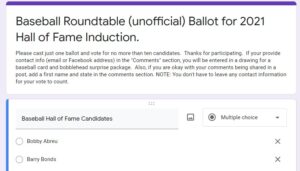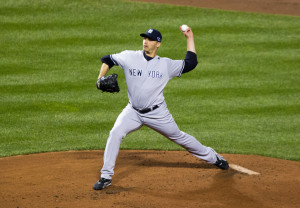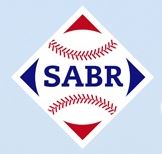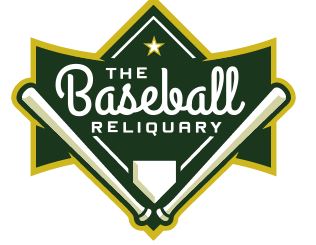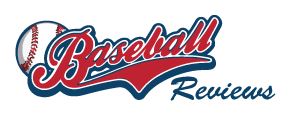BBRT’s Baseball Hall of Fame 2020 Debate Season is officially open! The Baseball Writers Association of America (BBWAA) 2021 Hall of Fame ballots were distributed yesterday and the results will be announced in January, with the honorees inducted on July 21. This year’s traditional ballot includes 14 holdovers from last year, along with 11 newcomers.
Skip the post (although I hope you will read on) and go right to the ballot, click here.
In this post, BBRT will share:
- Predictions on the 2021 BBWAA voting;
- BBRT’s ballot (if I had one);
- A deep look into all the candidates on the ballot;
- A link to BBRT’s unofficial fan ballot – please take a few minutes to follow the link and cast your votes.
––PARTICIPATE IN BASEBALL ROUNDTABLE’S 2021 FANS’ HALL OF FAME BALLOT—
Baseball Roundtable is once again conducting an unofficial fan ballot – to cast your vote(s), click here. Remember, you can vote for up to ten of the nominees for 2021 induction. If you want to read through the nominees’ bios first, there is another link to the BBRT Fan Ballot following the bios (near the end of this post). BBRT will be providing updates on the fan balloting, as well as a post-election comparison of fan votes as compared to the final BBWAA results. Voting on the BBRT Fan Ballot will remain open until January 1, 2021.
Also, if you leave your email or Facebook address in the comments section at the end of the ballot, you will be entered in a bobblehead and baseball card “surprise-prize” drawing.
Again, to cast your votes, click here.
As you consider this year’s slate of candidates, BBRT would stress that all the players on the ballot – even those who remain for only one voting cycle – deserve recognition. To rise to the major leagues, last ten years and make it past the Hall of Fame Screening Committee is a significant accomplishment in itself. In fact, the annual ballot release is a highlight for BBRT, as it provides a chance to acknowledge the accomplishments of all the candidates – not just the favorites for election. For example, a review of the ballot gives us the opportunity to honor Mike Buehrle’s n0-hitter and perfect game; Bobby Abreu’s 400 stolen bases; Billy Wagner’s 400 saves; A.J.Burnett’s nine-walk no-hitter; Torii Hunter’s nine Gold Gloves; LaTroy Hawkins’ 1,042 games pitched; Barry Zito’s Cy Young season; and more.
Now on to the official 2021 Baseball Hall of Fame election process itself – and, then, a look at the players on the ballot for 2021.
BASEBALL HALL OF FAME ELIGIBILITY/CRITERIA FOR ELECTION
The basic rules for eligibility are that a player must have played at least ten seasons and be retired for at least five years. In addition, the player must be approved for the ballot by the Hall of Fame Screening Committee.
A player can remain on the ballot for up to ten years, but must receive at least five percent of the vote in the preceding year’s ballot to remain on the ballot. Each voter can vote for up to ten candidates. Election requires that a player be named on at least 75 percent of the ballots cast.
The criteria for election: “Voting shall be based upon the player’s record, playing ability, integrity, sportsmanship, character, and contributions to the team(s) on which the player played.”
A couple of preliminary comments.
- This year’s ballot is not as crowded with strong newcomers as those as we have seen in that recent years. In the last five balloting sessions, for example, we have seen Derek Jeter, Mariano Rivera, Roy Halladay, Chipper Jones, Jim Thome, Ivan Rodriguez and Ken Griffey Jr. all elected on their first ballots.
- The 2021 ballot also includes no players in their final year of eligibility – a group that generally gains some additional momentum (and pulls votes from other nominees).
- The PED-controversey is appears to still be having on impact on voting, with some key players gaining support in recent voting – but not at a pace that points to election.
- The holdovers are players that at least 70 percent BBWAA voters found a reason not to support for 2020 election.(Curt Schilling had the highest percentage of votes among those no elected at 70 percent.) In addition, there are no newcomers on the ballot who can boast those “Oh, yes, you’re in” statistical achievements. No members of the 500- (or even 400-) home run club; no members of 3,000- (or even 2,500-) hit club; no members of the 3,000-strikeout club (and only pitcher with 2,500 whiffs); and no members of the 300 (or even 250) victories club.
In short, this year’s ballot has a lot of holdovers who are not sure things and a lot of very good newcomers, but no shoe-ins. It will be interesting to see how BBWAA voters view this year’s list (as well as hoe BBRT’s voters react). Now, let’s take a look at whom BBRT predicts will be elected by the BBWAA; how BBRT would vote if I had a ballot; and, along the way, the bios of these year’s candidates.
—–LIKELY BASEBALL HALL OF FAME ELECTEES FOR 2021—–
BBRT’s Prediction for 2021 …
Last November, Baseball Roundtable released its 2020 BBWAA balloting predictions, projecting the election of Derek Jeter and Larry Walker – and predicting “dark horse” candidate Curt Schilling would fall closer to 70 percent than 75. Jeter and Walker were elected and Schilling fell short (at 70 percent). Two years ago, BBRT projected the election of Mariano Rivera and Edgar Martinez and listed Mike Mussina and Roy Halladay as “dark horse” candidates with a chance to generate the needed 75 percent support. It was a bit of a swing and miss (maybe a foul ball), as all four were elected. Three years ago, BBRT predicted the election of Chipper Jones, Jim Thome, Vlad Guerrero and Trevor Hoffman (with Mike Mussina as a “dark horse” candidate). Jones, Thome, Guerrero and Hoffman made it, with Mussina garnering 64.5 percent (sixth-most).
For 2021, BBRT is not optimistic about the balloting. I see just one truly likely candidate – Curt Schilling, who has seen his vote percentage increase by more than 5 percent in each of the past four years: 45.0 percent in 2017; 51.2 in 2018; 60.0 in 2019; and 70.0 last year. Another 5 percent-plus increase would put him over the top. Further, if you go back to 2018, when Schilling finished with the ninth-highest vote total, six of the eight players who finished ahead of him are now in the Hall of Fame (the exceptions being Barry Bonds and Roger Clemens).
I’d add one dark horse candidate. Omar Vizquel (52.5 percent one year ago) – who should be helped by this year’s “slimmer” ballot – has a chance to gain some ground. However, it’s more likely he moves to about the 60-65 percent level percent this year.
Let’s move on to BBRT’s hypothetical – if I had one – ballot and bios of the players I would vote for; followed by a look at the remainder of the 2021 candidates.
Side note: You will not find those caught up in the PED-controversy on my ballot. While I think the best of them will eventually be elected/inducted, if I had a ballot, I’d prefer they made the 75 percent without my vote. Still, given their place in the history of the game, I’d probably break down and vote for the top players in this group when they reached their final year of eligibility.
So, here is BBRT’s Hall of Fame Ballot – again, if I had one – with the players listed in BBRT’s order of preference.
— PLAYERS WHO WOULD GET BBRT’S VOTE …
Jeff Kent – (Second Base/Third Base/First Base, 1992-2008) … Eighth year on the ballot, 27.5 percent last year.
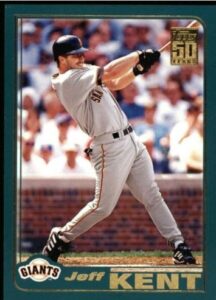 BBRT has long believed Jeff Kent is a deserving candidate, but he has not been getting much support from the writers. Kent holds the all-time MLB record for home runs by a second baseman (351 of his 377 career round trippers were hit while in the lineup at second base). He has a healthy .290 career batting average; his 1,518 RBI are 54th all time; and his 560 doubles 30th. His 984 extra base hits are 43rd all-time.
BBRT has long believed Jeff Kent is a deserving candidate, but he has not been getting much support from the writers. Kent holds the all-time MLB record for home runs by a second baseman (351 of his 377 career round trippers were hit while in the lineup at second base). He has a healthy .290 career batting average; his 1,518 RBI are 54th all time; and his 560 doubles 30th. His 984 extra base hits are 43rd all-time.
Kent was a five-time All Star and the 2000 NL MVP. As primarily a middle infielder, he hit 20 or more home runs in 12 seasons (a high of 37 in 2007) and topped 100 RBI eight times. He hit .276, with nine home runs and 23 RBI in 49 post-season games.
Running with the Big Boys …
Jeff Kent has more career runs batted in (1,509 in 17 seasons) than such noted Hall of Famers (who played a comparable number of seasons) as Mickey Mantle (1,508 in 18 seasons), Billy Williams (1,475 in 18 seasons), Eddie Mathews 1,453 in 17 seasons), Duke Snider (1,333 in 18 seasons) and Orlando Cepeda (1,365 in 17 seasons). Not bad for a middle infielder.
Kent has the credentials, but BBRT has a hunch the writers may keep him on the bench – a couple of Gold Gloves, at this traditionally defense-oriented position, would have really helped his case. Kent played for the Blue Jays (1992), Mets (1992-1996), Indians (1996), Giants (1997-2002), Astros (2003-2004) and Dodgers (2005-2008).
Jeff Kent’s Best Season: With the Giants in 2000, Kent put up these stats – 159 games; 196 hits; .334 average; 33 home runs; 125 RBI; 114 runs; 12 steals. His performance earned him the NL MVP Award.
Kent gets BBRT’s vote – and I believe the BBWAA’s support is overdue (but not forthcoming). This is one HOF “snub” that somewhat confuses BBRT.
_________
Todd Helton – (First Base, 1997-2013) … Third year on the ballot, 29.2 percent last year.
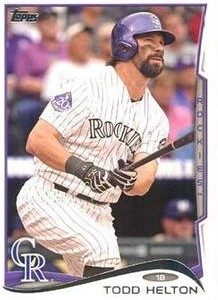 Todd Helton moved from 16.5 percent of the vote to 29.2 percent between his first and second years on the ballot. He faced some pretty strong ballot competition in those first two years and this year’s lighter ballot should help boost his numbers. I expect he might reach 40-45 percent). Still, he is hampered by the fact that he spent his entire 17-year career with the Rockies (playing half his games in hitter-friendly Coors field). Helton, who put up a .316 career average, hit .345 at home and .287 on the road. Despite that home/road split, Helton’s body of work deserves HOF consideration.
Todd Helton moved from 16.5 percent of the vote to 29.2 percent between his first and second years on the ballot. He faced some pretty strong ballot competition in those first two years and this year’s lighter ballot should help boost his numbers. I expect he might reach 40-45 percent). Still, he is hampered by the fact that he spent his entire 17-year career with the Rockies (playing half his games in hitter-friendly Coors field). Helton, who put up a .316 career average, hit .345 at home and .287 on the road. Despite that home/road split, Helton’s body of work deserves HOF consideration.
Helton was a five-time All Star, three-time Gold Glover and four-time Silver Slugger. He hit over .300 in 12 seasons – and won the NL batting crown in 2000 with a .372 average. His 59 doubles that season are the seventh-most all-time. Helton drove in 100 or more runs in five seasons and scored in triple figures six times. His 1,335 walks (36th all-time) indicate the respect he earned at the plate. Helton also ranks fifth in games played at first base, second in career assists at the position, 13th in putouts and third in double plays.
The Denver 400
Todd Helton is one of only 18 players to reach 400 or more total bases in a season – and one of only seven players to have multiple 400+ total base campaigns. He is also the only player to collect 100 extra-base hits in two consecutive seasons (2000-2001).
Todd Helton’s Best Season: In 2000, Helton won the NL batting crown with a .372 average – and also led the league in base hits (216), doubles (59), RBI (147), on-base percentage (.463), slugging percentage (.698) and total bases (405). He also scored 138 runs and hit 42 home runs.
Helton will stay on the ballot and has a chance at entry into the HOF – he’s just not likely to overcome the Coors Field-bias in the short-term future. He gets BBRT’s vote (as he has in the past).
__________
Omar Vizquel – (Shortstop/Third Base, 1989-2012) … Fourth year on the ballot, 52.6 percent last year.
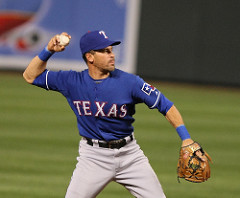
Photo by Keith Allison 
Omar Vizquel got off to a good start toward a HOF plaque, grabbing 37 percent support on his first-ballot year, moving up to 42.8 percent in his second year and 52.6 percent last year. Vizquel once again earns BBRT’s vote – and should make his way into the Hall of Fame over time. When he does, it will be more with his glove (eleven Gold Gloves) than his bat. However, voters should be mindful of the fact that he finished his 24-season MLB career just 123 hits short of that milestone 3,000 safeties.
Vizquel delivered premier defense to the Mariners (1989-1993), Indians (1994-2004), Giants (2005-2008), Rangers (2009), White Sox (2010-2011) and Blue Jays (2012). He was a three-time All Star – and put together a string of nine straight Gold Gloves at shortstop (1993-2001).
Sacrificing for the Team
Omar Vizquel led his league in sacrifice bunts four times.
In the field, Vizquel has the highest career fielding percentage (.9847) among shortstops with at least 500 games at the position. Vizquel is also the all-time leader among shortstops in double plays (1,734), ranks third at the position for career assists and 11th in putouts. He shares the record (with Cal Ripken, Jr.) for the fewest errors by a shortstop in a season of at least 150 games played (three). For those who are into advance metrics, Vizquel also had the highest career Defensive Wins Above Replacement (War) among shortstops at 44.2.
On offense, Vizquel put up a serviceable .272 career average, with 80 home runs, 951 RBI and 1,445 runs scored. The 1,445 runs put him in the top 100 players all-time (83rd); while his 2,877 hits put him in the top 50 (43rd and fourth all-time among switch-hitters). He also swiped 404 bases – topping twenty steals eight times (a high of 42 in 1999) – putting him at number-72 on the all-time list. Vizquel played in 57 post-season games, hitting .250-0-20.
Omar Vizquel’s Best Season: In 1999, with the Indians, Vizquel hit a surprising .333, with five home runs, 66 RBI, 112 runs scored and 42 stolen bases – and, of course, won a Gold Glove at shortstop.
Vizquel would get BBRT’s vote, but the BBWAA voters likely will make him wait a bit longer – showing a preference for a bit more offense. He does have a chance, however, given that his 2,877 base hits are at the top of this class.
__________
Billy Wagner – (LHP 1995-2010) … Sixth year on the ballot, 31.7 percent last year.
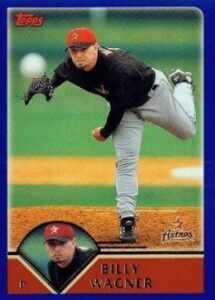 Billy Wagner played for the Astros (1995-2003), Phillies (2004-2005), Mets (2006-2009), Red Sox (2009) and Braves (2010). Wagner was a seven-time All Star, who amassed 422 saves (sixth all-time) in a 16-season MLB career. He had nine seasons of 30 or more saves; a career ERA of 2.31; 1,196 career strikeouts in 903 innings; and 47-40 won-lost record.
Billy Wagner played for the Astros (1995-2003), Phillies (2004-2005), Mets (2006-2009), Red Sox (2009) and Braves (2010). Wagner was a seven-time All Star, who amassed 422 saves (sixth all-time) in a 16-season MLB career. He had nine seasons of 30 or more saves; a career ERA of 2.31; 1,196 career strikeouts in 903 innings; and 47-40 won-lost record.
Whiff-and-Poof
In 1992, playing for Ferrum College, Billy Wagner set an NCAA record for strikeouts per nine innings in a season at 19.3.
Billy Wagner’s Best Season: In 2003, Wagner went 1-4, 1.78 for the Astros, saving 44 games and fanning 105 batters in 86 innings.
BBWAA voters have been very demanding of relievers (although the recent induction of Mariano Rivera and Trevor Hoffman may be a good sign – but they, of course, both had 600+ saves). It also helps that Lee Smith (478 saves) was elected by the Today’s Game Committee in 2019. BBRT thinks Wagner belongs in the Hall (based on his 400+ saves) – and hopes that momentum continues to build. Wagner has been gaining more support lately – 31.7 percent last year; 16.7 percent in 2019; 11.1 percent in 2018; 10.2 percent in 2017. He should gain more ground in this year’s ballot, but 75 percent is still a long way off. I’d like to see Wagner at least jump past the 50 percent mark. He gets my vote.
__________
Andy Pettitte – (LHP/Starter, 1995-2010, 2012-13) … Third year on the ballot, 11.3 percent last year.
I had to think for a while on this one (and will probably get some push back from readers), largely because a major part of Andy Pettitte’s HOF resume was achieved in the post-season and there was some PED-controversey surrounding Pettitte. (Note: Pettitte admitted to using HGH while recovering from elbow surgery – a couple of years before the substance was banned. He took responsibility and apologized.)
Pettitte holds the MLB post-season marks for most wins (19 … versus 11 losses), innings pitched (276 2/3), games started (44) and is fourth in strikeouts (183). His post-season accomplishments include a 3.81 career ERA and the 2001 American League Championship series MVP Award.
Pettitte, however, was no slouch in the regular season (Yankees – 1995-2003, 2007-2010, 2012-13) and Astros (2004-06). He finished with 256 wins (153 losses) and a 3.85 ERA. Pettitte won 20 games in two seasons and 14 or more games 12 times – leading the AL with 21 wins in 1996. The three-time All Star struck out 2,448 batters (45th all-time) in 2,316 innings.
Ready, Willing and Able …
Andy Pettitte started 30 or more games in a season 12 times, leading his league three times (1997, 2006, 2007.)
Pettitte’s post-season numbers, plus 256 regular-season victories and the fact that he had 100+ more career wins than losses secure BBRT’s vote. He still has a long way to go with the BBWAA voters, however.
Andy Pettitte’s Best Season: In 1997, following a 21-8 campaign in 1996, Pettitte went 18-7, with a 2.88 ERA (fourth-best in the AL), leading the league in starts with 35, finishing third in innings pitched (240 1/3) and eighth in strikeouts (166).
__________
Bobby Abreu – (OF, 1996-2012, 2014) … Second Year on the ballot, 5.5 percent one year ago.
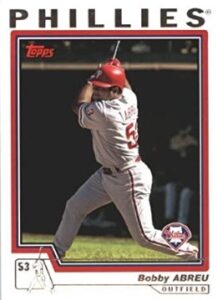 A solid .291 career hitter (2,470 base hits), Abreu hit .300 or better in six seasons. He hit 20 or more round trippers in 10 campaigns, stole 20 or more bases 12 times (a high of 40 in 2004), drove in 100 or more runs eight times and scored at least 100 runs eight times. Abreu also walked 1,476 times – including 100 or more free passes in eight straight seasons (1999-2006).
A solid .291 career hitter (2,470 base hits), Abreu hit .300 or better in six seasons. He hit 20 or more round trippers in 10 campaigns, stole 20 or more bases 12 times (a high of 40 in 2004), drove in 100 or more runs eight times and scored at least 100 runs eight times. Abreu also walked 1,476 times – including 100 or more free passes in eight straight seasons (1999-2006).
In the Top 50 …
Bobby Abreu’s 1,476 walks are 20th all-time; his 574 doubles are 25th; his putout as a RF are 12th; and his assists as a RF 28th.
Abreu played for the Astros (1996-97, Phillies (1999-2006), Yankees (2006-2008), Angels (2009-1012), Dodgers (2012) and Mets (2014).
In 20 post-season games, Abreu went 19-for-67 (.284), with one home runs and nine RBI.
Bobby Abreu’s Best Season: In 2004, as a Phillie, Abreu hit .301, with 30 home runs and 40 steals. An All Star that season, he also drove in 105 runs and scored 118.
Abreu’s 400 steals are an HOF plus, as his 30-40 season in 2004 and his eight campaigns with 100 or more RBI. Had he reached 300 home runs; it would have really boosted his status with the writers. He’s also hurt by the fact that he only made two All Star teams in his 18 seasons. Still, I have votes left and his body of work earns one of them.
__________
So, with BBRT’s unofficial ballot covered, let’s look at the remainder of candidates – in alphabetical order. Note: Here you will find a host of players with solid (but perhaps not HOF-level) career numbers and accomplishments – as well as a few that remain on the sidelines for other reasons.
—–THE REST OF THE BALLOT—–
Barry Bonds – (Outfield, 1986-2007) … Ninth year on the ballot, 60.7 percent a year ago.
Barry Bonds played for the Pirates (1986-1992) and the Giants (1993-2007). There is no doubt about Bond’s credentials – .298 average, 2,935 hits, MLB-record 762 home runs, 1,996 RBI, MLB-record 2,558 walks. He was also a 14-time All Star; 12-time Silver Slugger Award winner; his league’s MVP a record seven times; and an eight-time Gold Glove winner. In 2001, Bonds hit .328, with an MLB-record 73 home runs and 177 RBI. He drove in 100 or more runs 12 times and also scored 100 or more runs in a dozen seasons. And, I could go on and on.
Base Open? Makes Sense to Me …
Barry Bonds drew an MLB-record 688 intentional walks in his career. Second place? Albert Pujols, with 32. In 2004 alone, Bonds drew a record 120 intentional passes. He led his league in IBB 12 times.
Still, there are there is that pesky PED-controversey – an elephant in the room (and on the ballot) that I think will keep Bonds out of the Hall for at least another year. The dam may very well break and we will see some of the major stars now under a PED cloud take places in the Hall very soon. BBRT is not ready to cast that vote yet – and I don’t think 75 percent of the BBWAA is either. We can expect Bonds back on the ballot next year.
Barry Bonds’ Best Season: In 2001, Bonds crushed an all-time record 73 home runs, while hitting .328, driving in 137 runs, scoring 129 – all while drawing 177 walks.
_________
Mark Buehrle – (LHP, 2000-15) …. First year on the ballot.
Mark Buehrle pitched in 15 MLB campaigns – White Sox (2000-11), Marlins (2012), Blue Jays (2013-15) – and threw 200 or more innings in all but his rookie and final seasons. Buehrle was a five-time All Star and put up a 214-160, 3.81 record, with 1,870 strikeouts in 3,283 1/3 innings. He twice led his league in starts and twice topped his league in innings pitched. He won ten or more games in 15 consecutive seasons and six times won 15 or more. Buehrle also four Gold Glove Awards.
Near-Perfect and Perfect
Mark Buehrle’s HOF resume is bolstered by a no-hitter tossed on April 18, 2007 – when his White Sox topped the Rangers 7-0 and Buehrle faced the minimum 27 batters. The only Texas’ base runner came on a fifth inning, one-out walk to Sammy Sosa, whom Buehrle then picked off first base. Buehrle notched eight strikeouts in the game, which was so-o-o very close to a “perfecto.”
Buehrle got his perfect game two years later (July 23, m 2009), when he recorded a clean slate in a 5-0 ChiSox win over the Rays. He fanned six in that one.
Mark Buehrle’s Best Season: In 2005, Buehrle went 16-8, 3.12 for the White Sox.
If he had 250 wins to go with the no-hitter, perfect game and four Gold Gloves, Buehrle would have had my vote. With just 214 wins, no Cy Young Award and no 20-win season, he’s short of what BBRT looks for in a first-ballot inductee. I fully expect he will be back on the 2022 ballot.
__________
A.J. Burnett – (RHP, 1999-2915) … First year on the ballot.
A.J. Burnett pitched for five teams in his 17 MLB seasons: Marlins (1999-2005); Blue Jays (2006-08); Yankees (2009-11); Pirates (2012-13, 2015); Phillies (2014). He went 165-157, with a 3.99 earned run average. He made one All Star squad, in his final season (at age 38). He finished that campaign at 9-7, 3.18, but was 7-3, 2.11 at the All Star break. Burnett led his league in games started twice and strikeouts once. He won ten or more games in 11 of his 17 seasons.
One Wild No-No …
On May 12, 2001, A.J. Burnett pitched one of MLB’s wildest no-hitters. While his Marlins topped the Padres 3-0, Burnett notched no-hit, no-run game that included nine walks, a hit batsman and a wild pitch. Burnett walked one in the first inning; two in the second; two in the third; walked one and hit one in the fourth; walked one in the seventh; and walked two more in the eighth. H fanned seven in the 129-pitch outing
A.J. Burnett’s Best Season: In 2008, Burnett went 18-10, 4.07 for the Blue Jays and lead the AL with 231 strikeouts in 221 1/3 innings.
Eight games over .500 is just not enough to get BBRT’s vote – and likely will not keep Burnett on the ballot for 2022.
_________
Roger Clemens – (RHP, 1984-2007) … Ninth year on the ballot, 61.0 percent last year.
Roger Clemens pitched in 24 MLB seasons; for the Red Sox (1984-1996), Blue Jays (1997-1998), Yankees (1999-2003, 2007) and Astros (2004-2006). Clemens has Hall-worthy stats: 354 wins (ninth all-time), 4,672 strikeouts (third all-time), an MLB-record seven Cy Young Awards and the 1986 AL MVP Award. The eleven-time All Star was a five-time 20-game winner (led the league in wins four times), seven-time ERA leader, five-time league leader in strikeouts and six-time leader in shutouts. He won the AL pitching Triple Crown (Wins/ERA/Strikeouts) three times. Clemens also has 12 post-season wins, with 173 strikeouts in 199 post-season innings.
Grab Some Bench, Buddy
Roger Clemens shares the record for strikeouts in a nine-inning game (20) with Kerry Wood and Max Scherzer. Clemens is the only pitcher to achieve 20 whiffs in a nine-inning game twice.
Roger Clemens’ Best Season: Lots to choose from here. Like 21-6, 1.93 in 1990 – or 1987, with a 20-9 record, 2.97 ERA, 18 complete games and seven shutouts. I take 1986. Clemens went 24-4. 2.48 and won both the Cy Young (his first) and AL MVP Awards for the Red Sox. He led the AL in wins, winning percentage (.857) and earned run average. He was fifth in innings pitched (254) and second in strikeouts (238).
Yes, he’s got the numbers (those listed and more), but the PED controversy seems to stand between him and the Hall. Don’t think the BBWAA is ready yet, but he’ll continue on the ballot – and will likely gain a bit of ground toward that 75 percent requirement. This year could be the springboard toward a 2022 trip to the Hall.
________________
Michael Cuddyer – (RF/1B/3B, 2001-15) …. First Year on the ballot.
Michael Cuddyer spent his 15-season MLB career with the Twins (2001-11), Rockies (2012-14) and Mete (2015). He was a two-time All Star and put up a .277-197-794 line in 1,536 games. Cuddyer hit 20 or more home runs in four seasons (a high of 32 in 2009). He scored 100+ runs in one season and drove in 100+ in one campaign. He won the National League batting title with a .331 average (Rockies) in 2013. Cuddyer hit well in the post season – .306-2-8 in 28 games. (There are those who would like to attribute Cuddyer’s 2013 batting title to Coors Field, but while Cuddyer did hit.356 at home, he also hit a healthy .311 on the road that season.)
Two-for-One
In 2009, as a Twin, Michael Cuddyer hit for the cycle on May 22, 2009 and then on August 23 of that season hit two home runs in one inning (seventh) against the Royals, He’s the only MLB player to accomplish both feats in the same season.
Michael Cuddyer’s Best Season: In 2013, Cuddyer went .331-20-84, with ten stolen bases, for the Rockies.
A solid player and an all-around good guy (and a pretty good magician), but HOF stats are just not quite there.
__________
Dan Haren – (RHP. 2003-15) … First year on the ballot.
Dan Haren’s 13 MLB seasons saw him pitch for the Cardinals (2003-04), A’s (2005-07), Diamondbacks (2008-10), Angels (2010-12), Nationals (2013), Dodgers (2014), Marlins (2015) and Cubs (2015). Haren went 153-131, 3.75 over his MLB career, fanning 2,013 batters in 2,419 2/3 innings. He was a three-time All Star and won 15 or more games in three seasons and ten or more in eleven. He started 30 or games in 11 seasons and had an ERA under 3.50 in five campaigns. Haren was 2-0, 3.26 in seven post-season appearances (two starts).
Got ‘em All …
Dan Haren is one of 19 pitchers to record at least one win versus all 30 major league teams.
Dan Haren’s Best Season: Haren’s best season was probably 2008, when he went 16-8, 3.33 for the Diamondbacks.
____________
LaTroy Hawkins – (RHP 1995-2015) … First Year on the ballot.
LaTroy Hawkins might be the least well-known two-decade major leaguer. Hawkins came up to the big leagues as a 22-year-old and finished his MLB playing career at age 42 – a pretty nice run. During that time, he pitched for the Twins (1995-2003), Cubs (2004-05), Giants (2005), Orioles (2006), Rockies (2007 & 2014-15), Yankees (2008), Astros (2008-09) Brewers (2010-11), Angels (2012), Mets (2013) and Blue Jays (2015). Hawkins began his MLB tenure as a starting pitcher – from 1995-99 – going 26-44, 6.16 in 99 games (98 starts). Hawkins moved to the bullpen in 2000 and found his niche. Between 2000 and 2015, he appeared in 943 games – all in relief – going 49-50, 3.30 with 127 saves. He had three seasons of 20+ saves.
Put Me in ,Coach …
LaTroy Hawkins in number-ten all time in games pitched (1,042).
LaTroy Hawkins’ Best Season: From BBRT’s perspective, Hawkins’ best season was either 2004 (Cubs), when he went 5-4, 2.63 with 25 saves or 2003, when he went 9-3, 1.86 with two saves for the Twins.
BBWAA voters (and BBRT) are hard on relievers – and it’s particularly tough if you’re not a closer.
_____________________________
Tim Hudson, – (RHP. 1999-2015) … First year on the ballot.
Tm Hudson pitched in 17 MLB seasons: A; s (1999-2004), Braves (2005-2013); and Giants (2014-15). He was a four-time All Star – making the All Star squad with the A’s, Braves and Giants. Hudson’s career mark was 222-133, 3.49, with 2,080 strikeouts in 3, 126 2/3 innings pitched. He won 15 or more games in a season eight times, leading the AL in wins with 20 in 2000, his second MLB season. He led his league in games started twice, nine times starting 30+ games, and in shutouts twice.
A Two-way Player …
In 1997, Tim Hudson played in 65 games for Auburn University. As a pitcher he went 15-2, 2.97 and, as a hitter, he went .396-18-95. Appropriately, he was named SEC Player of the Year and was a consensus All American. (He was also named All-SEC at both pitcher and outfield.)
Tim Hudson’s Best Season: In 2000, with the A’s, Hudson went 20-6, 4.14, leading the AL in wins and winning percentage (.769). Also, in the running is 2001, when he went 18-9, with a 34.37 ERA.
Nearly 100 more wins than losses and four All Star selections should garner enough support to keep Hudson on the ballot.
__________
Torii Hunter – (OF, 1997-2015) … First year on the ballot.
Torii Hunter played 19 MLB seasons, suiting up for the Twins (1997-2007, 2015), Angels (2008-12) and Tigers 2013-14). He was a five-time All Star, and nine-time Gold Glover. For his career, Hunter hit .277 (2,452 hits), with 353 home runs, 1,391 RBI, 1,296 runs scored and 195 stolen bases. He hit 20+ home runs in 11 seasons, drove in 100+ runs twice and stole 20+ bases in three campaigns. Hunter hit .274-4-20 in 48 post-season games. Hunter led his league in CF assists three times, CF putouts once and double plays turned out of CF four times. He also led his league’s right fielders in putouts, assists and double plays once each.
Spider-Man
Torii Hunter earned the nicknamed spider-man for his outstanding outfield play.
Torii Hunter’s Best Season: In 2007 (Twins), Hunter hit .287, with 28 home runs, 107 RBI, 94 runs scored and 18 steals – although he can look back on at least four seasons with very similar numbers.
If I was going to add another player to my ballot, it would probably be Hunter. Nine Gold Gloves, five All Star selections and 353 home runs represent some pretty good credentials. What may hurt Hunter is his consistency. He could have used a couple of standout/spectacular/memorable seasons mixed in with all those very good campaigns that fans came to expect.
__________
Andruw Jones – (CF 1996-2012 )…. Fourth Year on the ballot, 19.4 percent last year.
Andruw Jones played for the Braves (1996-2007), Dodgers (2008), Rangers (2009), White Sox (2010) and Yankees (2011-2012). In a 17-season career – primarily patrolling centerfield – he won ten Gold Gloves (consecutively, 1998-2007). At the plate, he hit .254, with 434 home runs (47th all time), 1,289 RBI and 1,204 runs scored. He topped 25 home runs in ten seasons (six over thirty and a league-leading and career-high of 51 in 2005). He scored 100 or more runs four times, drove in 100+ five times and stole twenty or more bases in a season four times. Jones appeared in 76 post-season games, hitting .273, with ten home runs and 34 RBI.
On the Big Stage ,,,
In the 1996 World Series, Andruw Jones – just 19-years-old – hit .400 (8-for-20) with two home runs and six RBI, becoming the youngest player to go yard in the Fall Classic.
Andrew Jones’ Best Season: In 2005, Jones hit only .263, but led the NL in home runs (51) and RBI (128) – finishing second in the MVP voting to Albert Pujols (.330-41-117).
Jones’ ten Gold Gloves work in his favor, but – over the long haul – that .254 average (he only hit .300 or better once and over .270 only four times) dampen his HOF chances.
____________________________
Aramis Ramirez – (3B ,1998-2915) …. First year on the ballot
Aramis Ramirez may be the most under-appreciated player joining the ballot this year. Ramirez played 18 major league seasons, hitting .283, with 386 home runs, 1,417 RBI and 1,098 runs scored. He played for the Pirates (1998-2003), Cubs (2003-11) and Brewers (2012-2015). The three-time All Star hit 20+ home runs in ten seasons, had 100+ RBI seven times and hit .300 or better six times. In 2012, he led his league in doubles with 50.
Ouch.
Aramis Ramirez could have put up even more impressive numbers were it not for numerous injuries: quadriceps (2005), shoulder (2009), thumb (2010), knee (2013).
Aramis Ramirez’ Best Season: In 2004, with the Cubs, he hit .318-36-103, with 99 runs scored.
Trivia Tidbit …
In the 2003 National League Championship Series (Game Four), Aramis Ramirez hit the Cubs’ first-ever post-season Grand Slam.
I really wanted to vote for Ramirez. Like Torii Hunter, he needed a couple of spectacular seasons mixed in with all those “really good” campaigns. Still, I think, he will get enough support to stay on the ballot. Ramirez is one of those “bubble” guys. Had he reached 400 homers and 1,500 RBI, I’d probably have checked his unofficial box.
__________
Manny Ramirez – (Outfield, 1993-2011) – Fifth year on the ballot, 28.2 percent last year.
Manny Ramirez played 19 MLB seasons, collecting 2,574 hits, a .312 batting average, 555 home runs (15th all-time) and 1,831 RBI (19th all-time). Ramirez was a 12-time All Star and led the AL in average (2002), home runs (2004) and RBI (1999) once each. Ramirez won nine Silver Slugger Awards, including eight consecutive (1999-2006), hit .285 with 29 home runs in 111 post-season games and was the 2004 World Series MVP. He hit 30 or more home runs in twelve seasons (five of 40+), scored 100 or more runs six times, hit .300 or better in 11 seasons and topped 100 RBI 12 times.
It’s Post Time …
Manny Ramirez’ 29 post-season home runs are first all-time, while his 78 post-season RBI rank second. In addition, he is the all-time post-season leader in walks (72, tied with Chipper Jones) and ranks third in post-season hits (117) and runs scored (67).
Ramirez clearly put up HOF-caliber numbers, but two PED-related suspensions continue to hurt his chances. Not this year, but he’ll be back for another shot. Still he’s got a long way to do. Ramirez played for the Indians (1993-2000), Red Sox (2001-2008), Dodgers 2009-2010) and Rays (2011).
Manny Ramirez’ Best Season: In 1999, with Cleveland, Ramirez hit .333, with 44 home runs and 165 RBI (14th most in a season all-time) in 140 games.
__________
Scott Rolen – (Third Base, 1996-2012) … Fourth year on the ballot, 35.3 percent last year.
Scott Rolen played for the Phillies (1996-2002), Cardinals (2002-2007), Blue Jays (2008-2009) and Reds (2009-2012). The seven-time All Star (including in two of his final three seasons) flashed leather and lumber, collecting eight Gold Gloves and rapping 316 home runs. He finished with a .281 average, 316 home runs, 1,287 RBI, 1,211 runs scored and 188 stolen bases. Rolen hit 25 or more home runs seven times, with a high of 34 in 2005. He also put up five 100+ RBI seasons, scored 100+ runs in two campaigns and reached double digits in steals five times.
Off to a Good Start …
Scott Rolen was the NL Rookie of the Year in 1997 (.283-21-92, with 16 steals).
Scott Rolen’s Best Season: In 2004, with the Cardinals, Rolen hit career highs in average, home runs and RBI (.314-34-124) and won a Gold Glove.
Those Gold Gloves should keep Rolen on the ballot. If only he had reached 200 steals or 400 home runs.
__________
Curt Schilling – (RHP, 1988-2007) … Ninth year on the ballot, 70.0 percent last year.
Curt Schilling pitched for the Orioles (1988-1990), Astros (1991), Phillies (1992-2000), Diamondbacks (2000-2003) and Red Sox (2004-2007). Schilling was a six-time All Star, with 216 career wins (three seasons of 20 or more wins) over a 20-season MLB career. He recorded the 15th most career MLB strikeouts at 3,116 (three seasons of 300 or more whiffs), led his league in wins twice, complete games four times, innings pitched twice and strikeouts twice. He was also the 2001 World Series co-MVP – and has an impressive 11-2, 2.23 ERA post-season record (19 starts).
Putting the “K” in StriKeout …
Curt Schilling is one-half of one of only two tandems of teammates to strike out 300 batters in the same season. In 2002, Schilling fanned 316 batters for the Diamondbacks, while teammate Randy Johnson whiffed 324. In 2019, Gerrit Cole (326) and Justin Verlander (300 K) joined this club.
Curt Schilling’s Best Season: In 2001, Schilling went 22-6 for the Diamondbacks (with a 2.98 ERA). That year, he led the league in wins, starts (35), complete games (six), innings pitched (256 2/3).
It looks like Schilling will get in this year … he just needs a five-percent improvement. For me he is on the cusp for the HOF – reaching 250 wins would help sway me (although Jim Kaat, with 283 wins and 16 Gold Gloves is still not in the HOF – a Minnesota gripe here). However, Schilling’s outspoken views and the lack of a Cy Young Award have been working against his vote-getting capacity. (All these things play a factor in my holding my unofficial vote.)
__________
Gary Sheffield … (Outfield/Designated Hitter/Third Base/Shortstop, 1988-2009) … Seventh year on the ballot, 30.5 percent last year.
Gary Sheffield played for the Brewers (1988-1991), Padres (1992-1993), Marlins (1993-19998), Dodgers (1998-2001), Braves (2002-2003), Yankees (2004-2006), Tigers (2008) and Mets (2009). Sheffield was a nine-time All Star (in 22 MLB seasons). He launched 509 career home runs (26th all time) and topped 30 home runs in a season eight times (a high of 43 in 2000). He also maintained a .292 career average (hit .300+ in eight seasons); and collected 1,676 RBI (30th all-time). Sheffield won the 1992 NL batting title (.330); topped 100 RBI eight times; and scored 100 or more runs in a season seven times.
From the Spring to the Winter of a Baseball Life …
Gary Sheffield is one of only four players to hit MLB home runs as teenagers and in their 40’s. The others are Ty Cobb, Rusty Staub and Alex Rodriguez.
Gary Sheffield’s Best Season: In 1996 (Marlins), Sheffield hit .314, with 42 home runs, 120 RBI, 188 runs scored and 16 steals.
Sheffield has the offensive numbers, but defensive questions and the shadow of PEDs are likely to keep him on the outside looking in for now. He did jump from 13.6 percent of the vote in two years ago to 30.5 percent last year – so that’s progress. I don’t see as big a gain in this year’s balloting.
_______________
Sammy Sosa – (Outfield, 1989-2007) … Ninth year year on the ballot, 13.9 percent last year.
Sammy Sosa played for the Rangers (1989, 2007), White Sox (1989-1991), Cubs (1992-2004) and Orioles (2005). Sosa hit 609 home runs (9th all-time) in 18 MLB seasons – winning two HR titles, topping sixty three times and also hitting 50 one year. In the four seasons from 1998 to 2001, Sosa averaged 60 home runs and 149 RBI per season. His career numbers include a .273 average, 1,667 RBI (31st all-time), 1,475 runs scored and 234 stolen bases (a high of 36 steals in 1993). Sosa was the 1998 NL MVP (Cubs), led his league in home runs twice, runs scored three times and RBI twice.
Sixty Home Runs and All I Got was this Lousy T-Shirt …
Sammy Sosa has the most 60-home run seasons in MLB history with three – yet he did not lead the league in home runs in any of them. In 1998, he hit 66 home runs (Mark McGwire hit 70); in 1999, Sosa launched 63 (McGwire had 65); and, in 2001, he hit 64 (Barry Bonds hit 73). Talk about unfortunate timing.
Sammy Sosa’s Best Season: In 1998 (Cubs), Sosa hit .308, with 66 home runs, a league-leading 158 RBI and a league-leading 134 runs scored – and even tossed in 18 stolen bases.
Why is the seven-time All Star not in the Hall? The PED shadow continues to cloud his chances.
__________
Nick Swisher – (RF/1B, 2004-15) … First Year on the ballot.
I always thought “Swisher” was an unfortunate name for a hitter, but switch-hitter Nick Swisher overcame that moniker to hit .249-245-803, with 895 runs scored over 12 MLB seasons – A’s (2004-07), White Sox (2008), Yankees (2009-12), Indians (2013-15) and Braves (2015). The one-time All Star hit 20 or more home runs in nine seasons, with a high of 35 in 2006.
Swisher’s Best Season: BBRT sees a pair of possibilities here. In 2006, Swisher hit .254-35-95 for the A’s and in 2010 (his All Star season), he hit .288-29-89 for the Yankees.
Just one All Star selection is not enough for Hall voters.
__________
Shane Victorino – (OF, 2003, 2005-15) … First year on the ballot.
Known as the Flyin’ Hawaiian, primarily for his speed and defensive skills, Shane Victorino played 12 MLB seasons – Padres (2003), Phillies (2006-12), Red Sox (2013-15) and Angels (2015). Victorino was a two-time All Star and four-time Gold Glover. During his career he led the NL in triples twice. He scored 100+ runs in two seasons and stole 20+ bases in six (a high of 39 in 2012). He also hit 10 or more home runs in seven seasons, with a high of 18 in 2010.
Shane Victorino’s Best Season: In 2009 (Phillies), Victorino hit .292, with 10 home runs, a league-leading 13 triples, 102 runs scored, 62 RBI and 25 steals.
Victorino needed either more offense or more Gold Gloves to gain significant HOF support.
_____________
Barry Zito – (LHP, 2000-13, 2015) ….First time on the ballot.
Barry Zito, who won the 2002 AL Cy Young Award, was a true workhorse on the mound – four times leading his league in games started and starting 30+ games in 11 of his 15 MLB seasons. Zito pitched for the A’s (2000-06, 2015) and Giants (2007-13). Over his career, he went 165-143, 4.04, with 1,885 strikeouts in 2,576 2/3 innings pitched. He was a three-time All Star and won 14 or more games in six seasons (a league-leading high of 23 in 2002).
Barry Zito’s Best Season: Easy one here. In 2002 (A’s), Zito went 23-5, 2.75 and won the AL Cy Young Award.
Being just 22 games over .500 with an ERA slightly north of 4.00 is not enough to make the Hall.
________
BASEBALL ROUND TABLE EXTRA ….
Here’s a player who didn’t make it past the Hall of Famer Screening Committee, but whom I would like to have seen on the ballot (even if for just one year) – in honor of potential not realized.
Grady Sizemore – (CF 2004-2011 & 2014-15) …. Not on the ballot.
Surgery-requiring knee and back surgeries took a toll on the career of Grady Sizemore, who played ten MLB seasons – with the Indians (2005-2011), Red Sox (2014), Pirates (2014), Phillies (2014-15) and Rays 2015. In his first five seasons (four full seasons), Sizemore was an All Star three times and went .279-111-349, with 117 steals in 682 games. Over his final five seasons, he went .238-39-169, with 26 stolen bases in 419 games.
Sizemore was a three-time Star and led his league in runs scored once and doubles once. He also won a pair of Gold Gloves. In his first five campaigns (and in his career), he hit 20+ home runs four times (30+ once), drove in 100+ run once, scored 100+ runs four times and stole 20+ bases in four seasons. Sizemore had a 30-30 season in 2008, hitting .268, with 33 home runs and 39 steals for the Indians. He also won his second Gold Glove that season.
Grady Sizemore’s Best Season: In 2006 (Indians), Sizemore hit .290, with 28 home runs, a league-leading 53 doubles, 11 triples, 76 RBI, a league-topping 134 runs scored and 22 stolen bases.
No, I wouldn’t have given him my vote, but I would like to have seen him on the ballot.
Again, to vote in Baseball Roundtable’s unofficial Fan Baseball Hall of Fame Ballot, click here.
Primary Resources: National Baseball Hall of Fame; Baseball-Reference.com; Baseball-Almanac.com
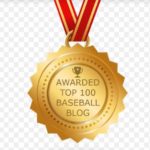 Baseball Roundtable is on the Feedspot list of the Top 100 Baseball Blogs. To see the full list, click here.
Baseball Roundtable is on the Feedspot list of the Top 100 Baseball Blogs. To see the full list, click here.
I tweet baseball @DavidBBRT
Follow/Like Baseball Roundtable’s Facebook Page here. More baseball commentary; blog post notifications; PRIZES.
Member: Society for American Baseball Research (SABR); Negro Leagues Baseball Museum; The Baseball Reliquary.
